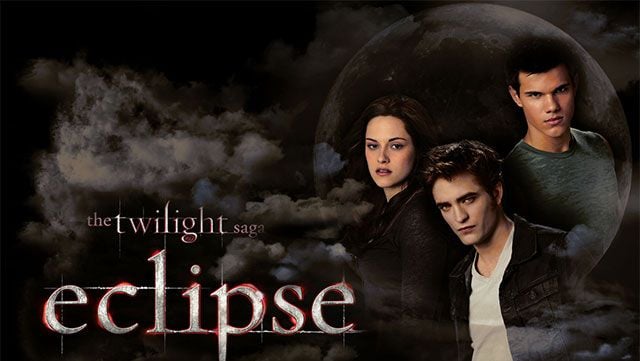
The cultural phenomenon that was Twilight casts a long, peculiar shadow. For a generation, it was a coming-of-age touchstone, a gateway to a world of glittering vampires, brooding werewolves, and an intensely earnest love triangle. For others, it was a punching bag, an easy target for critical derision. Regardless of one’s stance, its impact is undeniable, its legacy etched into the early 21st century's pop culture landscape. So, when the franchise's reluctant star, Kristen Stewart, recently offered a surprisingly open-minded take on the burgeoning reboot rumors, the internet, and indeed, the Twilight fandom, collectively paused, then erupted in a cacophony of agreement and despair. Her unexpected stance didn't just reignite dormant hopes; it cleaved the fandom in two, illuminating the complex, often contradictory, relationship fans have with their cherished cultural touchstones.
Kristen Stewart’s journey post-Twilight has been a masterclass in artistic reinvention. Shedding the commercial skin of Bella Swan, she meticulously crafted a career defined by indie film, critical acclaim, and a palpable disinterest in revisiting her blockbuster past. She became synonymous with challenging roles, edgy fashion, and a general air of cool detachment that seemed to actively push against the mainstream machine that birthed her fame. This carefully curated distance made her recent comments a curious, almost jarring, shift. When asked about a Twilight reboot, Stewart didn't offer a dismissive eye-roll or a firm "no." Instead, she mused on the potential for a "different way" to tell the story, expressing an openness to seeing it reimagined, perhaps even hinting at her own theoretical involvement in some capacity. It was a surprising pivot from the actress who once embodied the reluctant face of a global sensation, suggesting a maturation, a softening, or perhaps a pragmatic acknowledgment of the enduring power of a story she once seemed keen to escape.
This surprising openness immediately activated the latent hopes of one segment of the Twilight faithful. For them, Stewart’s comments were a validation, a whispered promise that the world they adored might once again flicker to life. This camp, often driven by a potent blend of nostalgia and a desire for redemption, sees a reboot as an opportunity. They envision a version that could right perceived wrongs – better special effects, more nuanced character development, a script untethered from some of the source material's more divisive elements. They dream of seeing their beloved characters through a modern lens, perhaps with updated sensibilities that reflect a more evolved societal discourse. For these fans, the idea of Kristen Stewart, no longer a teenager grappling with fame but a seasoned, critically acclaimed actress, even considering it lends a gravitas that a mere studio announcement couldn't. It’s a chance to revisit a familiar comfort, a return to the soft glow of teenage bedrooms where first crushes bloomed alongside supernatural romance. They are the optimists, the dreamers who believe that some stories are so potent they deserve endless retellings, each offering a fresh perspective.
Yet, diametrically opposed to this hopeful anticipation stands the fiercely protective vanguard of the Twilight fandom. For them, Stewart’s comments were not a validation but a betrayal, a potential desecration of a sacred text. This contingent views the original films, for all their flaws, as a perfect, untouchable time capsule. They argue that Twilight was a product of its specific cultural moment, imbued with an earnestness and a particular aesthetic that cannot, and should not, be replicated. Its charm, they contend, lies precisely in its imperfections, its raw, sometimes awkward, sincerity. The thought of a reboot, especially one with Stewart’s conceptual blessing, feels like a cynical cash grab, an attempt to exploit nostalgia rather than honor it. "Leave it alone," is their silent, collective plea. "It belongs to its time, to our time." They fear that a new iteration would inevitably taint the original, diluting cherished memories or erasing the deeply personal connection they forged with the story as it first unfolded. For them, a reboot isn't a fresh take; it's a cheap imitation, a ghost of a past self stripped of its genuine spirit.
This profound division underscores a larger cultural conversation about intellectual property, fan ownership, and the relentless churn of reboots and remakes. When an actor like Kristen Stewart, who has so publicly distanced herself from the very franchise that launched her, expresses a potential interest in its revival, it forces fans to confront their own evolving relationship with the past. Is nostalgia a healthy yearning, or a destructive addiction that demands endless, often inferior, reiterations? Is a beloved story a fixed entity, or a malleable myth that can be endlessly reinterpreted?
Kristen Stewart’s surprising take on Twilight reboot rumors didn't just spark online debate; it peeled back a layer of the collective fan psyche. It exposed the raw nerve of affection, protectiveness, and longing that lies beneath the surface of seemingly simple entertainment. Whether a Twilight reboot ever materializes is secondary to the profound effect of her words. They served as a catalyst, forcing fans to articulate their deepest desires for, and fears about, the stories that shape them, proving that the magic of Forks, Washington, still holds a powerful, and divisive, grip on the hearts of many.
